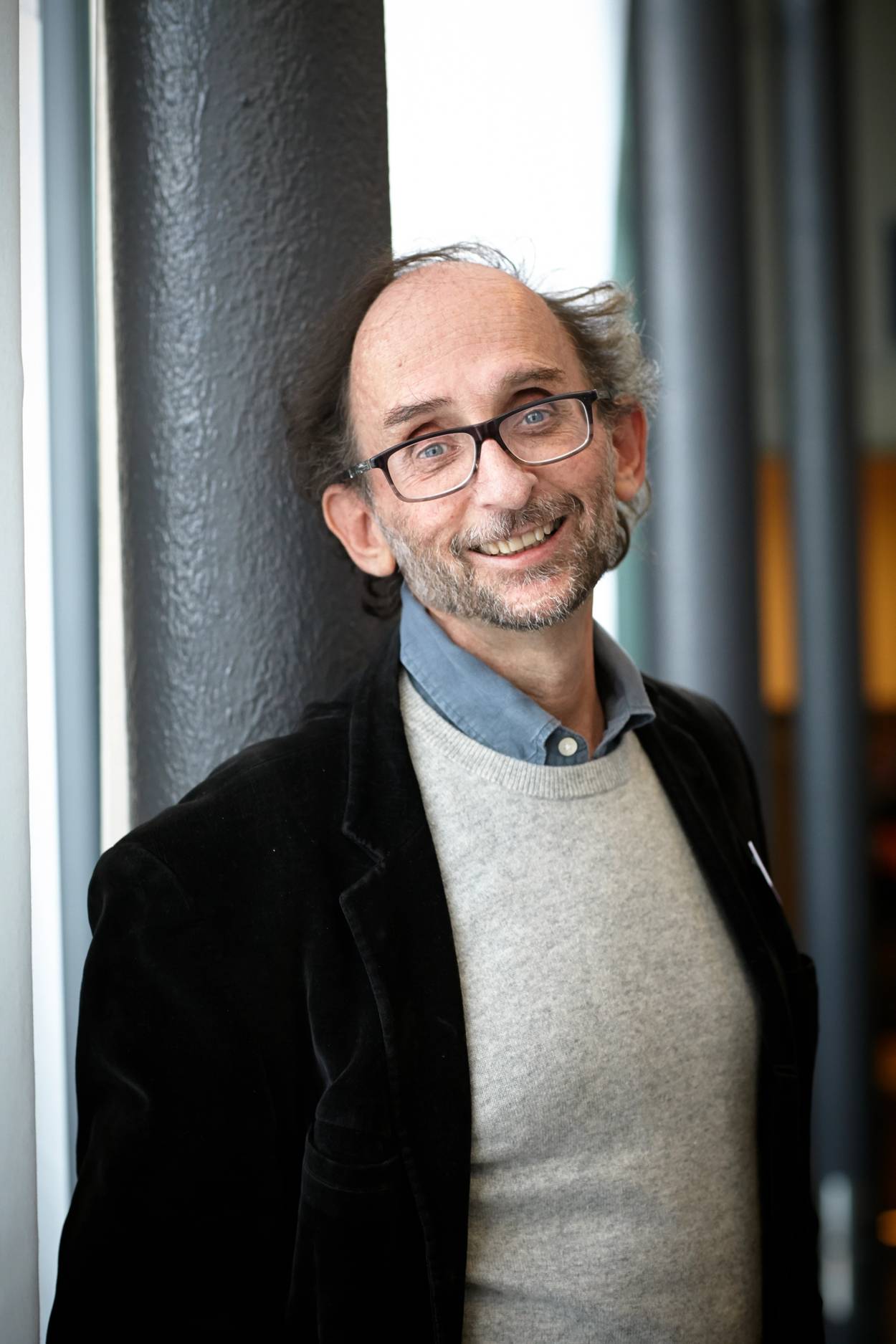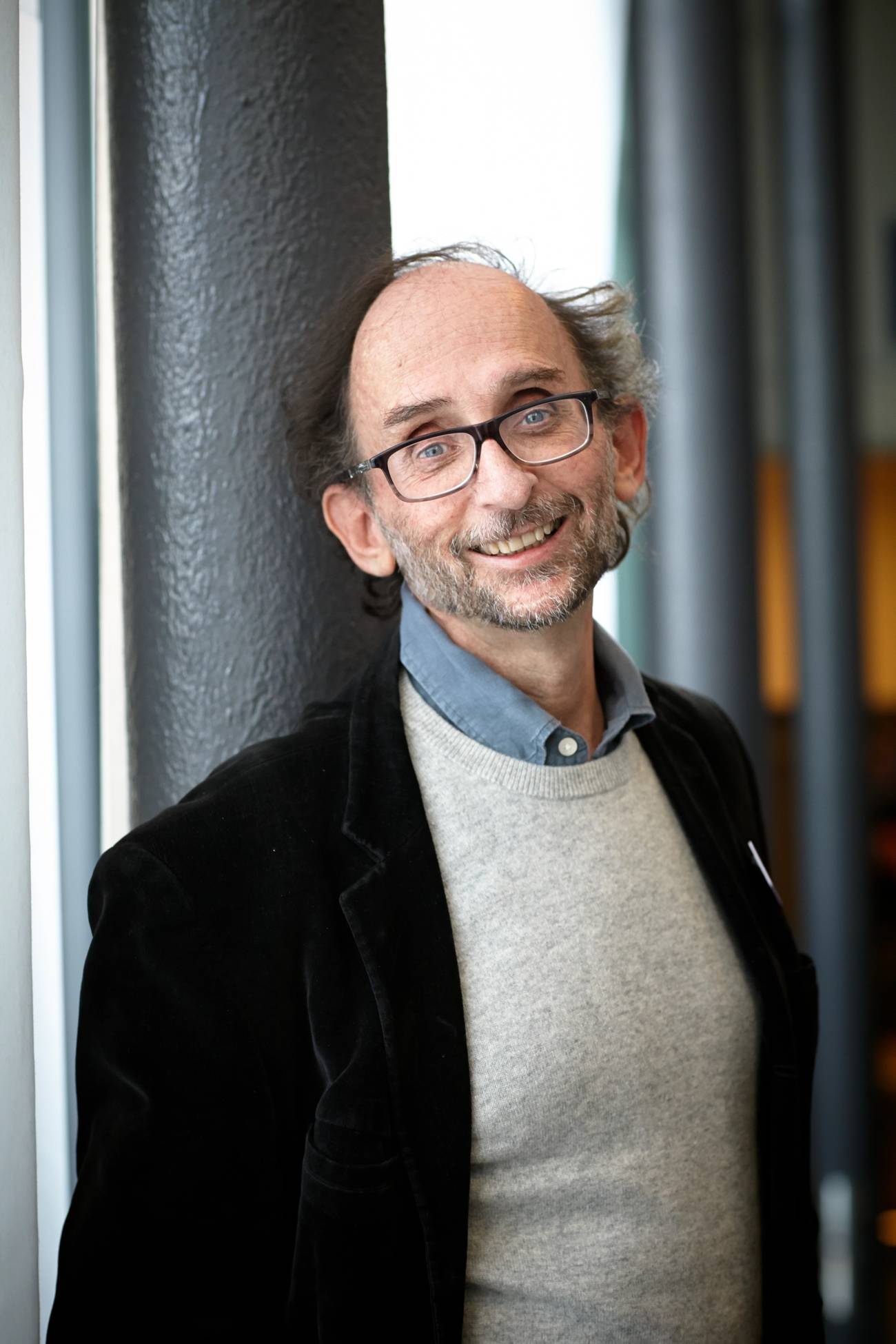The Epicurus of Mexico City
After a lifetime dedicated to expanding literacy, Daniel Goldin now wants to build public spaces for Mexicans of different backgrounds to read, rest, and play




Daniel Goldin’s protruding ears, thick glasses, and receding hairline fit the stereotypical image of a book rat. Indeed, the previous director of one of Latin America’s most prominent public libraries—the humongous, Matrix-like Biblioteca Vasconcelos, built by Mexican Jewish architect Alberto Kalach—has had no shortage of books throughout his life.
Goldin has devoted his professional career to promoting reading habits in Mexico, a country with one of the lowest rates of books read per capita globally, and all across Latin America, a continent which achieved a literacy rate of more than 90% of the population only at the end of the last century.
In the 1990s, Goldin founded “A la Orilla del Viento,” a children’s book series akin to the American Scholastic Series, which has redefined the genre for thousands of children in the Spanish-speaking world. The 30-year-old collection has published more than 300 different books. It has impacted an entire generation of young readers throughout Latin America and Spain.
I grew up as one of his fans. As a 9-year-old, I was obsessed with Willy the Wimp, an illustrated book about a shy, bookish young gorilla, written by Anthony Browne and translated into Spanish by Goldin. I even met the author on a book tour organized by Goldin in Mexico City; he had a picture of Willy hanging from one of his walls.
When Goldin was offered the chance to develop A la Orilla del Viento within Mexico’s prestigious Fondo de Cultura Económica (FCE)—the legendary, government-backed publishing house that introduced Heidegger and Marx to the Spanish-speaking world, and published the first books of Octavio Paz, Carlos Fuentes, and Juan Rulfo—it was a daunting task. He read widely on what different age groups supposedly “needed” from children’s books and found the material to be “incredibly formulaic.” So instead, he chose to treat children as adults: He promoted the love of reading for its own sake rather than as a means to facilitate child “development,” and published works that aimed to expand the reader’s engagement with the wider world.
One of the first books Goldin translated was The Bridge in the Jungle, a 200-page novel by the pseudonymous and presumably German writer B. Traven (who also wrote The Treasure of the Sierra Madre), originally published as a serial in the German socialist newspaper Vorwärts. It dealt with the differences between Christian and Indian cultures in Latin America, and in particular in the southern Mexican state of Chiapas. It was one of Goldin’s favorite books as a child, having borrowed it from the Mexican Jewish Sports Center where his father worked as a librarian.
Born in Poland, Goldin’s father migrated to Argentina when he was 3 years old, and later helped establish Kibbutz Negba as a member of the left-wing Zionist movement Hashomer Hatzair. There he met Goldin’s mother, a Sephardic Jew, also a member of Hashomer, whose family had migrated from Turkey to Mexico during the 1920s. Goldin later found out that his father was kicked out of the kibbutz on charges of harassment, and moved with his wife to Ashkelon, where he worked as a night watchman.
“I found all of this during a trip to Argentina in search of my roots,” he said. “A question is important when it motivates you to start a quest. The act of naming and putting in words is absolutely liberating and enables you to live in this paradoxical world.”
After a couple of years in Ashkelon, a relative who lived in Mexico offered to pay for Goldin’s mother and father to move to Mexico City. Goldin, their fourth son, was born there in 1958.
The family lived in Narvarte, which Goldin described as the neighborhood where more impoverished Jews lived. Neither of his parents had advanced education, but his father was an avid reader. They spoke Spanish and Hebrew at home. “None of them spoke Polish or Turkish. Those were languages of exile, negated by their Zionist upbringing.”
After finishing high school and a gap year in Israel, Goldin took off to San Francisco in 1978 with a backpack full of books: Julio Cortazar’s Hopscotch, Allen Ginsberg’s poems, Nietzsche’s Thus Spoke Zarathustra, André Breton’s Surrealist Manifestos, and Octavio Paz’s Versiones y diversiones. Under the influence of Jack Kerouac, he then decided to hitchhike across the United States. After visiting New York, he took off to Barcelona, Spain, where he met Roberto Bolaño, who later became one of the most influential novelists in the Spanish-speaking world. Goldin lived there two years, trying to make it as a writer and painter.
He came back to Mexico in 1980 and started working as a proofreader. According to Goldin, he was terrible at it. Eventually he landed a job at the Fondo de Cultura Económica that was previously occupied by his friend, the Argentine Jewish editor Alejandro Katz.
Goldin was then tasked with founding A la Orilla del Viento, which he ran from 1991 to 2009. After that he created a book collection about publishing, reading, and writing called Ágora, which featured books like The Art of Reading in Times of Crises by Michele Petit and Bibliotherapy by the rabbi and philosopher Marc-Alain Ouaknin, which explained how reading spaces and literacy programs in the favelas of Rio and other downtrodden areas helped reduce violence.
In 2006, Goldin participated in the design and research coordination of Mexico’s first national reading survey at the end of Vicente Fox’s presidency. He later presented the results of the survey at a public event in the Vasconcelos library’s auditorium. He never dreamed that he’d eventually end up as the director of such a massive institution.
Goldin is primarily interested in what he calls the dialectical and critical tradition of Judaism, in which specific themes are enunciated and then avidly discussed. “The idea of the world as constant interpretation is for me the quintessential Jewish way of inhabiting the world.” He is less interested in what he sees as the Jewish nationalism that he believes is exemplified by Israel’s appropriation of Jewish thinkers like Spinoza and Freud, who had ambivalent if not antagonistic relationships to their Jewish communities.
“I’m not anti-Israeli, but I’m mostly interested in the Jewish idea of exile, living through exile as an ontological condition,” said Goldin. “The principle of opening one’s house to receive the Other in all its full-blown difference is important to me. Jewish thinkers such as Derrida, Freud, and Spinoza assume that the human subject is something to discover, time and time again.”
Goldin implemented this hospitality principle during his tenure at the Vasconcelos library, which began in 2013. Goldin turned the enormous building, which architecture critics consider to be the most important Mexican public work of the 21st century, into a massive laboratory for new forms of social engagement: He organized after-hours modern dance shows, math study groups, a monthlong informational course on child-rearing for first-time mothers, and so-called human libraries, where patrons came to sit and talk with complete strangers. During Goldin’s time at Vasconcelos, the library received 2 million visitors per year.
When it took power in 2019, the administration of President Andrés Manuel López Obrador ousted Goldin—who was seen as part of the “old guard”—mostly for political reasons. This sparked a public outcry from Mexican intellectuals and the library’s patrons from across the political spectrum who valued his work and leadership at the institution.
The monumental building has since been converted into a mass vaccination site. In the meantime, Goldin has reappeared in the spotlight, promoting a strategy to treat what he considers to be the increasingly polarized and fragmented public sphere in Mexico. Naturally, his strategy has to do with books.
Goldin recently founded Jardín LAC, a civil association and future public space in Mexico City inspired by famous gardens throughout history. It aims to unite Mexicans of different classes and backgrounds in “a place to read, listen, walk, chat, think, rest, study, work, and play.” The design concept of Jardín LAC is an ecological reinterpretation of the Garden of Epicurus, focused both on social and human diversity and also biodiversity. Influential intellectuals like the anthropologist Nestor García Canclini, visiting Harvard scholar and education specialist Elisa Bonilla, and political scientist Mauricio Merino are all on the group’s board.
Before the pandemic hit, Goldin had been approached by Colegio de las Vizcainas, a historically laic school set up by Basques in an area of the city devoted to those excluded from society, like orphans and prostitutes. But COVID put a halt to those plans.
Despite not knowing what turns his current project will take, he is adamant about his lifelong belief that reading is an essentially civic and social act. “In Spanish and Latin the word ‘world’ means to clean up,” he said, “it is an act of selection. Reading is a way of inhabiting this world.”
Alan Grabinsky is a freelance writer and journalist based in Mexico City, covering Jewish life and urban issues for international media.